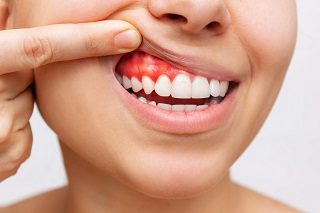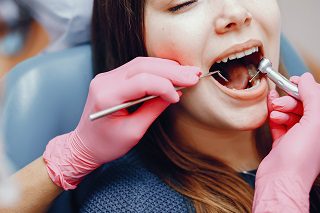Who Can Get Periodontal Treatment?
Dental Implants Solutions
Periodontal disease is common in adults. It is estimated that around 50% of adults over 30 years suffer from this disease in the US. It is necessary to treat this ailment before it gets too late. Otherwise, it will lead to tooth or bone loss and cause further tooth complications. Treatment for this disease depends upon the individual’s health and other underlying factors discussed in this article. Start by learning more about the disease. Let’s discuss the stages of the disease and the ideal candidates for its treatment.

Stages Of Periodontal Disease
Periodontal disease is a gum infection that results when plaque builds up and gets hardened. It typically arises from poor brushing or flossing habits and can lead to tooth or bone loss. There are four stages of periodontal disease, of which only one stage is reversible, i.e., gingivitis.
Stage One: Gingivitis
This phase of periodontal disease refers to a mild form of gum disease that emerges from plaque and bacteria surrounding the teeth and gums. It causes the gums to become inflamed and swollen. This stage is reversible provided if necessary, measures are taken without any delay.
Stage Two: Slight Periodontal Disease
The second stage, i.e., slight periodontal disease, is not reversible but manageable. In this stage, the infection reaches the bone, and the bone destruction process initiates. Here, the bacteria become quite aggressive and lead to further bone loss if not treated well on time.
Stage Three: Moderate Periodontal Disease
This stage cannot be reversed, and here bacteria affect the bone, the immune system, and the bloodstream. The treatment mainly involves root planing and scaling to remove the bacteria.
Stage Four: Advanced Periodontal Disease
This stage cannot be reversed, and here bacteria affect the bone, the immune system, and the bloodstream. The treatment mainly involves root planing and scaling to remove the bacteria.
Treatment Options
There are several treatment options for curing this disease. However, treatment depends upon individual requirements and the health condition of patients.
Surgical Methods
- Bone Grafting
- Flap Surgery
- Guided Tissue Generation
- Soft Tissue Grafts
- Regenerative Procedures
- Dental Crown Lengthening
- Pockets Procedure
Non-Surgical Methods
- Laser Treatment
- Tray Delivery Systems
- Scaling
- Root Planing
- Localized Medications
- System Antimicrobials Method
Ideal Candidates For Periodontal Treatment

Patients with advanced periodontal disease are usually suitable candidates for surgical treatment options. However, people who have diabetes, use tobacco, have undergone radiation treatment to cure cancer, and pregnant ladies are not good candidates for surgical methods.
The following factors must be met for oral surgery methods before undergoing the treatment.
- Patients must have good bone density.
- They have better oral hygiene and overall oral health.
- Oral procedures also demand patience and commitment. So, if you are well-disciplined, you are a good candidate.
Patients with less severe periodontal disease or who are not fit for surgical methods are suitable candidates for non-surgical treatment.
Conclusion
Periodontal diseases must be cured on time to reduce their long-term health risks. Treatment for the disease depends upon the individual’s state of health and the severity of the disease. If you suffer from periodontal disease, do not hesitate to consult a dentist near you.
Contact your Walnut Creek Dentist, Dr. Massood Darvishzadeh, DDS at Dental Implant Solutions as soon as possible if you are experiencing these stages of Periodontal Disease.
Resource
Gum Diseases And Their Symptoms
*Neither this nor any other content in this media is meant to prescribe, recommend, or prevent any treatment or procedure. We highly recommend that you get the advice of a qualified dentist or other medical practitioners regarding your specific dental condition.
Subscribe To Our Newsletter
Get Updates And Learn From The Best
More To Explore



CONTACT US
Massood Darvishzadeh, DDS
2021 Mt Diablo Blvd., Suite 100A
Walnut Creek, CA 94596
(925) 939-2600info@dentalimplantsolutions.net